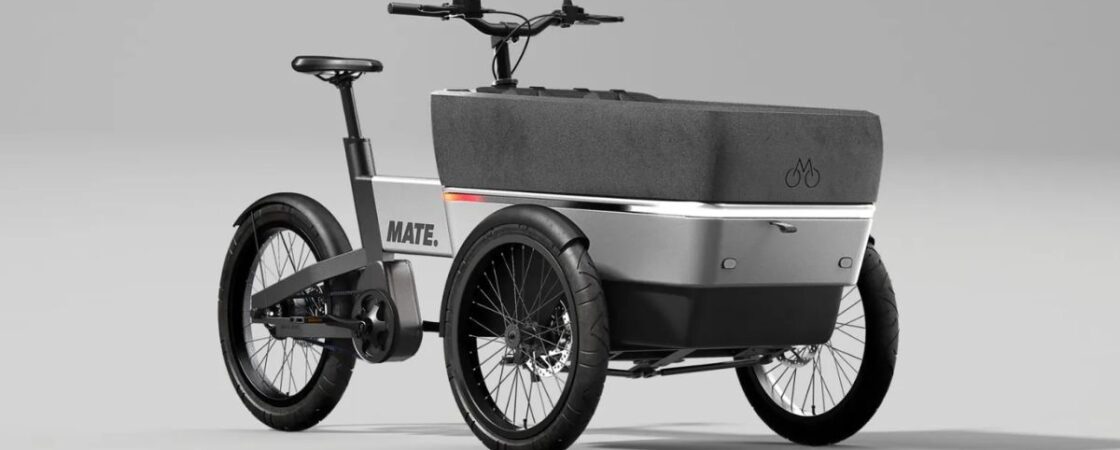The Electric Cargo Bicycle market has emerged as a transformative force within the urban mobility landscape, blending sustainability with efficiency. In 2023, the market achieved a significant valuation of around USD 1.81 billion. Projections for the future indicate an impressive Compound Annual Growth Rate (CAGR) of 15.4% between 2024 and 2032. By 2032, the Electric Cargo Bicycle market is anticipated to surge to a value of USD 6.55 billion. This article delves into the intricacies of the Electric Cargo Bicycle market, exploring its historical evolution, technological advancements, key players, and the factors fueling its exponential growth.
Historical Evolution:
The concept of cargo bicycles traces its roots back to the late 19th century, primarily used for transporting goods in urban areas. With the integration of electric propulsion technology in recent decades, Electric Cargo Bicycles have experienced a resurgence in popularity. The combination of human-powered mobility with electric assistance has positioned these bicycles as eco-friendly alternatives to traditional delivery vehicles.
Key Components and Technological Advancements:
Electric Cargo Bicycles are equipped with an electric motor and a rechargeable battery, offering riders the option of both pedal and electric-assisted propulsion. Technological advancements have led to the development of lightweight yet powerful electric motors, advanced battery systems, and smart integration features. Some models incorporate regenerative braking systems to enhance energy efficiency.
Telematics and IoT (Internet of Things) technologies play a crucial role, providing connectivity and real-time tracking capabilities. These features not only optimize delivery routes but also contribute to the overall efficiency and sustainability of last-mile logistics.
Market Dynamics and Urban Mobility Trends:
The market dynamics of Electric Cargo Bicycles are influenced by the growing emphasis on sustainable urban mobility solutions. As cities worldwide grapple with congestion, pollution, and the need for eco-friendly transportation, Electric Cargo Bicycles have emerged as a viable solution for last-mile deliveries and urban logistics.
The integration of Electric Cargo Bicycles into logistics and delivery fleets by e-commerce companies, food delivery services, and local businesses has become a common sight in urban centers. Municipalities and businesses increasingly recognize the economic and environmental benefits of adopting Electric Cargo Bicycles as part of their transportation infrastructure.
Environmental Impact and Sustainability:
The environmental impact of Electric Cargo Bicycles extends beyond reduced carbon emissions. These vehicles contribute to mitigating traffic congestion, minimizing noise pollution, and improving air quality in urban areas. The shift towards sustainable logistics aligns with global efforts to create greener, more livable cities.
The use of Electric Cargo Bicycles also reflects consumer preferences for eco-friendly and socially responsible practices, influencing businesses to adopt sustainable transportation solutions. As a result, Electric Cargo Bicycles have become symbolic of the broader movement towards green urbanism.
Globalization and Local Adoption:
While Electric Cargo Bicycles have gained popularity globally, their adoption varies across regions. European cities, in particular, have embraced the concept of cargo bikes as an integral part of urban transportation. The trend is gradually spreading to North America and Asia, with cities exploring policies and incentives to encourage the use of Electric Cargo Bicycles for commercial and personal purposes.
Local adaptation involves addressing specific challenges and opportunities unique to each region. Factors such as infrastructure, regulatory frameworks, and cultural acceptance play a significant role in determining the success and scalability of Electric Cargo Bicycle initiatives.
Regulatory Landscape and Infrastructure Development:
The regulatory landscape for Electric Cargo Bicycles is evolving to accommodate their integration into urban transportation systems. Many cities are revising regulations to define the use of electric-assisted bicycles, including cargo variants. Initiatives such as dedicated bicycle lanes, bike-sharing programs, and incentives for businesses adopting Electric Cargo Bicycles contribute to a supportive infrastructure.
Collaborations between governments, businesses, and advocacy groups are crucial for creating a conducive environment for Electric Cargo Bicycle adoption. Pilot programs and case studies demonstrate the feasibility and benefits of integrating these bicycles into urban logistics networks.
Key Players and Industry Collaboration:
The Electric Cargo Bicycle market is marked by the participation of established bicycle manufacturers, start-ups specializing in cargo solutions, and collaborations with established logistics companies. Key players are investing in research and development to enhance battery technology, improve cargo capacity, and optimize the overall design and functionality of Electric Cargo Bicycles.
Collaborations between Electric Cargo Bicycle manufacturers and logistics providers have led to innovative solutions for last-mile deliveries. Integrating Electric Cargo Bicycles into existing supply chains requires a collaborative approach, with companies working together to address challenges related to infrastructure, regulation, and operational efficiency.
Market Challenges and Future Prospects:
Despite the promising growth trajectory, the Electric Cargo Bicycle market faces challenges such as regulatory ambiguities, limited infrastructure, and concerns about vehicle safety in densely populated urban areas. Overcoming these challenges requires continued advocacy, collaboration, and technological innovation.
The future prospects for the Electric Cargo Bicycle market are optimistic, with a projected CAGR of 15.4% between 2024 and 2032. Advancements in battery technology, increased governmental support, and the evolving mindset towards sustainable urban logistics contribute to a positive outlook. As Electric Cargo Bicycles continue to evolve, they are poised to play a pivotal role in shaping the future of urban mobility.



